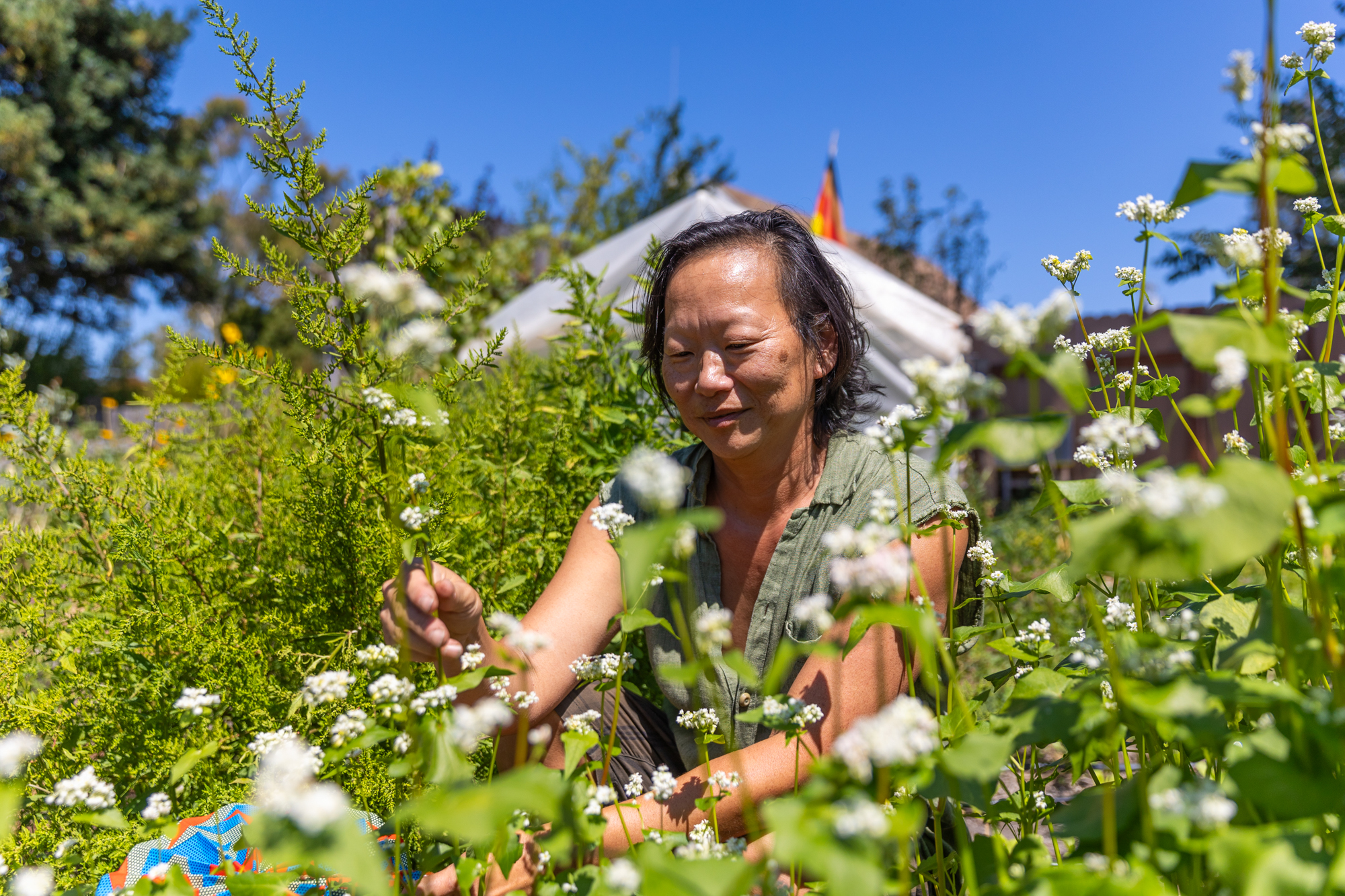
"In 2019, she co-founded the Bitter Cotyledons with her partner, Tam Welch, a Korean American who works in the arts. As Matsushita-Tseng explained, the name of the collective carries ideas about the nourishing qualities of bitter Asian foods and queer communities - and how both can grow despite being underappreciated. (A cotyledon is the first leaf that emerges from a plant embryo, providing it with nutrients while it grows.)"
"Every weekend, the Bitter Cotyledons meet to tend their plot at the community garden, a city-owned space. With twelve regularly active members, the collective is growing around 35 different vegetables and herbs, including Chinese licorice, Japanese Akahana Mame beans, Vietnamese coriander and perilla. It's a lot for their 750 square feet of land (300 of which is on loan from a neighboring gardener). If given more space, they'd keep expanding."
"Between 2017 and 2022, the number of Asian farmers and ranchers in the U.S. rose by 8 percent, even as the total number of farmers and ranchers fell by about 1 percent. California leads the way with the highest number of Asian farmers, including Matsumoto Family Farm near Fresno, and Leslie Wiser at Radical Family Farms and Kristyn Leach at Gohyang Fields, both in Sebastopol."
The Bitter Cotyledons is a queer Asian American farming collective that grows Asian vegetables to explore cultural identities and ancestries through diasporic queer experiences. The collective was co-founded in 2019 by Kellee Matsushita-Tseng and Tam Welch and comprises about twelve active members tending a 750-square-foot community garden plot. The group cultivates roughly 35 vegetables and herbs, including Chinese licorice, Japanese Akahana Mame beans, Vietnamese coriander, and perilla. The collective emphasizes nourishment, resilience, and underappreciated cultural foods. USDA data shows Asian farmers increased by 8 percent between 2017 and 2022, with California leading in Asian farming presence. The collective focuses on belonging rather than profit.
Read at Kqed
Unable to calculate read time
Collection
[
|
...
]